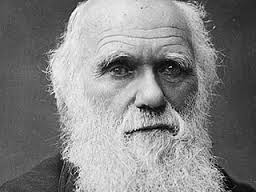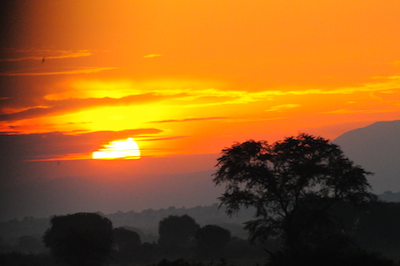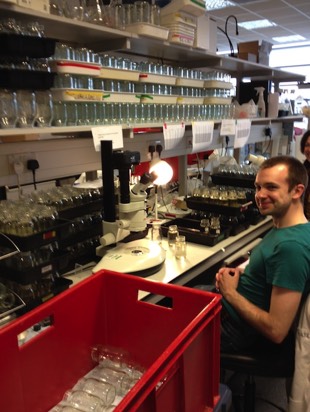Teaching

Evolutionary Biology - LIFE 213
I am the module coordinator for LIFE 213, a 2nd year module on evolutionary biology that I teach with Prof. Greg Hurst, Dr Andrea Betancourt, Prof. Ilik Saccheri, Dr Michael Berenbrink and Prof. Steve Paterson
The aim of the course is to provide students with a modern framework for understanding how organisms evolve. The first part of the module focusses on microevolution. The second half of the module covers macroevolution. The course is a mixture of lectures, practical classes, online resources and directed reading.

LIFE 222 - Uganda field course
Back in 2008 I helped to establish a new Tropical ecology field course in Uganda (Module coordinator: 2009-2016). Since 2008, myself and colleagues (the course is now co-ordinated by Dr John Lycett) have taken 2nd year students to Uganda on a 2-week tropical ecology field course. The course provides students with a hands-on experience studying all aspects of tropical ecology ranging from mist-netting and camera trapping through to human-wildlife conflict, forest dynamics and eco-tourism. Kibale and Queen Elizabeth national parks - our home for 14 days - are famous for its primate diversity (12 species). But there are more than 600 bird species in the national parks we visit and many of the insects we see may not even described.
Student feedback from the course:
"The practical experience that this module provides is invaluable. Instead of just learning theory with tests in a lab you are learning then putting it into practice yourself”
“Best module ever and one of the best things I have ever done! The best way to make students love their work is to take them out in the field”
“I loved it. Each day is varied and interesting. I would recommend the course to anyone…..its added so much scope to my learning and helped me make decisions relating to my own future in research”
“ Not cuddled instead are allowed to find things out for yourself”
 Chris Shirley who completed an MRes in the lab working on this project (which involved a lot of jars!)
Chris Shirley who completed an MRes in the lab working on this project (which involved a lot of jars!) Research projects
I strongly support the idea that Hons students have the opportunity to carry out independent research projects as part of their degree. It was doing this that helped to convince me that academia was the career I wanted. Consequently, I always try to aim to give Hons and Masters students in my lab novel hypotheses to test, or research questions that we do not yet have the answer for. In many cases this has led to excellent students publishing the work they have done with us.
Examples of some recent Hons and Masters student publications from our lab:
O’Connor M, Sadler DE, Brunner FS, Reynolds A, White N, Price S, Plaistow SJ (2021) Measuring Daphnia life history in the wild: The efficacy of individual field cages. Ecology and Evolution, 11, 16927-16935
Hasoon MSR, Plaistow SJ (2020) Embryogenesis plasticity and the transmission of maternal effects inDaphnia pulex. Evolution & Development, 22: 345–357
Sadler DE, Brunner FS, Plaistow SJ (2019) Temperature and clone-dependent effects of microplastics on immunity and life history in Daphnia magna. Environ Pollut, 255: 113178
Plaistow SJ, Shirley C, Collin H, Cornell SJ, Harney ED (2015) Offspring Provisioning Explains Clone-Specific Maternal Age Effects on Life History and Life Span in the Water Flea, Daphnia pulex. Am Nat, 186: 376–389
Modules for 2025-26
Advanced Skills in Zoology
Module code: LIFE331
Role: Teaching
CURRENT SKILLS AND TOPICS IN EVOLUTIONARY BIOLOGY
Module code: LIFE324
Role: Teaching
Essential Skills for the Life Sciences 2
Module code: LIFE223
Role: Teaching
Evolution in the Anthropocene
Module code: IVES712
Role: Module Co-ordinator
Evolutionary Biology
Module code: LIFE213
Role: Module Co-ordinator
Global change biology field course
Module code: IVES726
Role: Teaching
IVES Research Project
Module code: IVES702
Role: Teaching
Introduction to IVES Research
Module code: IVES701
Role: Teaching
Skills for Global change biology
Module code: IVES725
Role: Teaching